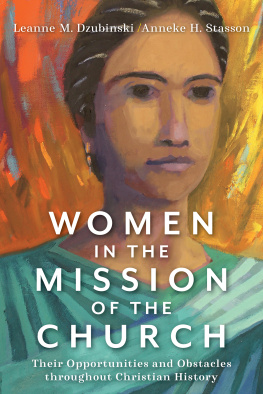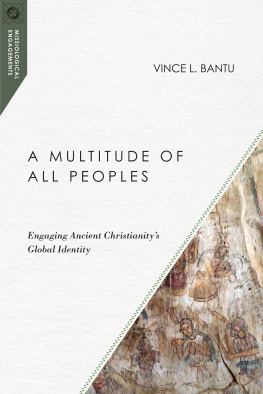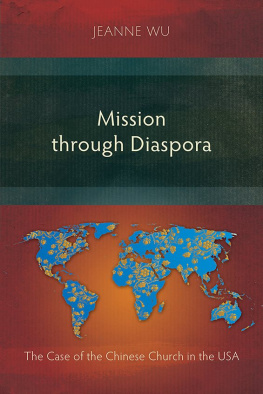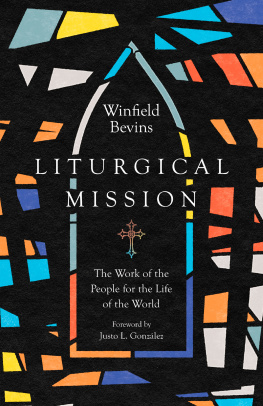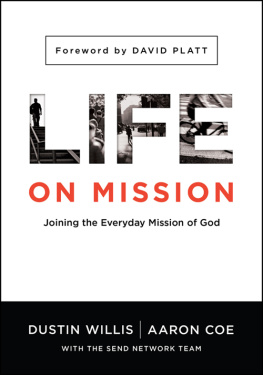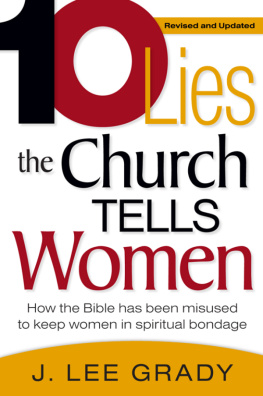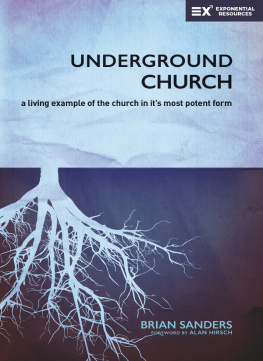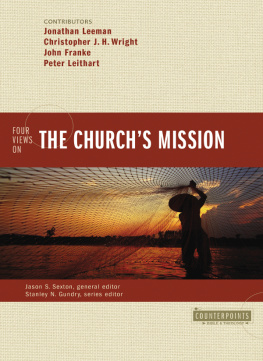1. Patrons, Missionaries, Apostles, Widows, and Martyrs
2. Virgins, Scholars, Desert Mothers, and Deacons
3. Mothers, Sisters, Empresses, and Queens
4. Medieval Nuns
5. Beguines and Mystics
6. Women Preachers in America
7. Social Justice Activists
9. Faith Missionaries, Evangelists, and Church Founders
Preface
A s we wrote this book, we began to really understand Johns exclamation in John 21:25: Jesus did many other things as well. If every one of them were written down, I suppose that even the whole world would not have room for the books that would be written. Jesuss followers, over the last two thousand years, have also done many other things. Library shelves are full of books recording those things.
For a number of years now, Leanne has been giving a presentation on women in the history of the church. She developed the presentation originally for a class on women in leadership at Philadelphia Biblical University, as it was then called. She chose to take a birds-eye view, covering womens involvement in three eras of history in which their work was crucial to the spread of Christianity and was particularly visible: the early church orders of widows, virgins, and deacons; the medieval monastic movements; and the modern missionary movement. The goal of the presentation was to show that women have alwaysfrom the time of Jesus up to the present daybeen crucial to Gods work on earth. God has always had a place for women with a vocation to serve. She wanted to show that women in ministry was not a new idea of the twentieth century as part of 1960s second-wave feminism, as she often heard claimed, but was instead Gods good plan from the beginning.
Next she started giving the presentation at retreats for women missionaries and for women in executive leadership in mission organizations. Pretty soon women began to ask, Wheres the book? They wanted to read the stories of these amazing women for themselves. They wanted to see, in print, how women had been engaging in ministry throughout church history.
Keenly aware that she is not a historian, Leanne invited Anneke to join her in writing the book. Anneke had previously done historical work on women, sexual ethics, and marital practices in nineteenth- and twentieth-century Christian mission. She had long been interested in the churchs teaching on gender roles, and she knew that while scholars have been doing tremendous work to reclaim the stories of women in church history, most of those stories have yet to make their way into our churches. This book aims to pass down this scholarship to students, parishioners, and pastors so as to enable them to better answer some of the questions about women and ministry.
We struggled to decide who and what to include in this book. For every story we did include, there are many others that we didnt and multitudes of stories beyond those that are completely lost to history. We also want to be transparent about our limitations. Although we have international experience and speak other languages, we are, first and foremost, English-speaking Americans. The material we can access is written in English; the perspectives we can obtain are primarily those of English-speaking Westerners. We have included some non-Western stories and perspectives in this book, but we are keenly aware of our limitations in that regard. We have not even scratched the surface of the contributions of women in Asia, Africa, and Latin America. Nor have we done an extensive, critical examination of racism, colonialism, and other -isms that have plagued the church. We are grateful that people around the world are also taking up their pens and writing the accounts of women in their societies, and we are eager for those stories to become more well known. We believe that women in every society need to be reminded that God loves them, values them as daughters, and calls them to kingdom service.
There are numerous people we would like to thank for their support and encouragement throughout this book-writing process. First of all, we thank our editor, Jim Kinney, who believed in us and offered us a book contract. Thank you! We are also grateful for our mentors, Alice Mathews and Dana Robert. Thank you for modeling the way and showing us how to look for womens contributions in church history. We also want to thank Lynn Cohick and Kristin Kobes Du Mez for offering helpful comments on early drafts of some of these chapters. And we want to thank Will Carpenter for conversing with us about the cover of this book and for painting the piece that is the current cover.
I (Leanne) received support and encouragement from many sources during the writing process. Wendy Wilson of Womens Development Track was the first to ask for a book and then continued to request the book until I finally agreed to write one. Biola University granted me a course release one semester. For years, Paul, Kate, and Anna Dzubinski have listened to me talk about the importance of womens stories and contributions to the church, and they have encouraged me every step of the way. Paul was unfailingly patient and supportive when I worked on the book at night and on weekends. Graduate student Stephanie Calley found sources, read drafts, and gave excellent feedback. Rob and Jackie Parke read early chapter drafts and also gave helpful feedback. Patricia Lantis read chapter drafts and described young women in ministry she knew who would gobble this up like starved people. And Kate Dzubinski read the first draft of the chapter on women in the early church within hours of receiving it. Her response was that reading it was balm to the soul. We pray this book will feed starved people and be balm to the soul for many more women!

